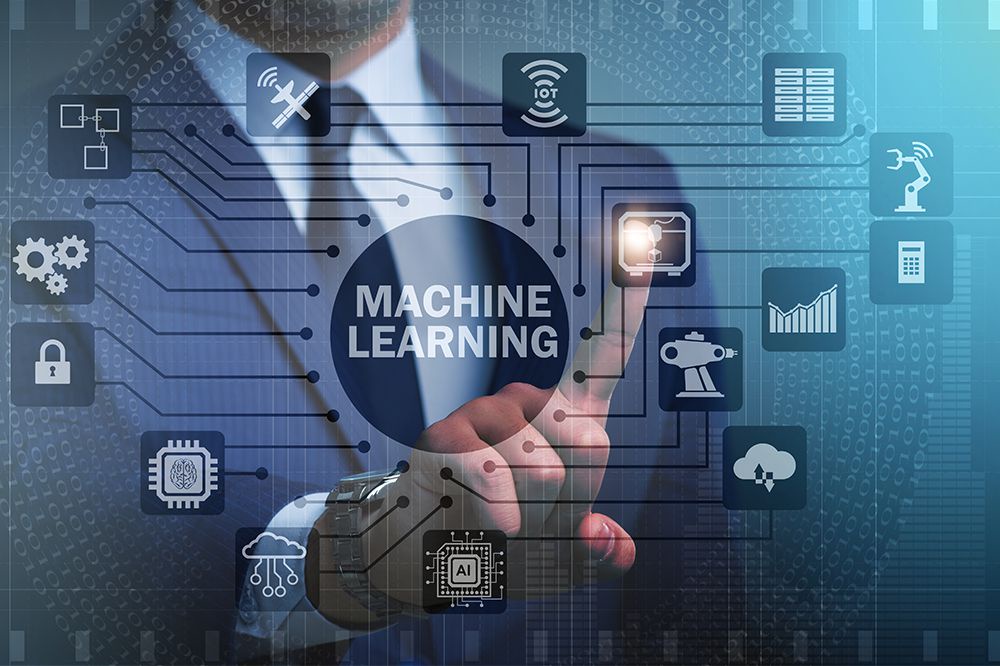How Machine Learning is Revolutionizing the Audio Conversion Process
In the ever-evolving landscape of technology, machine learning has emerged as a game-changer across various industries. One of its remarkable contributions can be seen in the audio conversion process, where it has revolutionized the way we manipulate and transform audio data. From enhancing audio quality to transcribing spoken words, machine learning is transforming the world of audio in unprecedented ways. In this article, we will delve into the profound impact of machine learning on audio conversion, exploring the ways in which it is changing the game.
Understanding Audio Conversion
Before we dive into the transformative power of machine learning, it's essential to understand what audio conversion entails. Machine learning audio conversion Audio conversion involves converting one form of audio data into another. This can include tasks like converting analog audio (vinyl records or cassette tapes) into digital formats or changing the audio format from one digital type to another, such as MP3 to WAV. The process also encompasses the enhancement of audio quality, noise reduction, and speech-to-text transcription.
Machine Learning: A Brief Overview
Machine learning is a subset of artificial intelligence (AI) that focuses on the development of algorithms capable of learning from and making predictions or decisions based on data. It is particularly powerful when it comes to pattern recognition and data analysis, which is why it has had such a significant impact on audio conversion.
Enhanced Audio Quality
One of the most remarkable ways machine learning has revolutionized audio conversion is through the enhancement of audio quality. Traditional audio conversion processes often resulted in a loss of quality. Machine learning algorithms, on the other hand, can analyze audio data, identify imperfections, and apply corrective measures in real-time.
For example, audio restoration algorithms powered by machine learning can remove background noise, correct distortions, and enhance the overall sound quality. This is invaluable for converting old, deteriorating audio recordings into pristine digital formats.
Noise Reduction and Isolation
Machine learning is also capable of isolating and reducing noise from audio recordings. Whether it's the hum of an air conditioner or unwanted background chatter, machine learning algorithms can identify and minimize these disturbances, leaving you with clean and clear audio.
Speech recognition technology, which is widely used in transcription services and voice assistants, relies on machine learning to distinguish spoken words from background noise. This has revolutionized the way we interact with technology, making voice commands and voice-to-text transcription more accurate than ever before.
Efficient Speech-to-Text Transcription
Transcribing spoken words is a tedious and time-consuming task. Machine learning has automated and improved this process by enabling highly accurate speech-to-text transcription. Algorithms can now recognize and convert spoken words into written text with remarkable precision.
The application of machine learning in transcription services has far-reaching implications, from medical professionals dictating patient notes to journalists conducting interviews. This technology not only saves time but also minimizes errors, making the process more reliable and efficient.
Adaptive Audio Format Conversion
Converting audio from one format to another is a common need, whether for compatibility or quality improvement. Machine learning has made this process more adaptive and user-friendly. Algorithms can analyze the source audio and the desired format, optimizing the conversion process to preserve the highest possible quality.
These algorithms can also handle batch conversions, allowing users to convert multiple files simultaneously. This is a significant time-saver for individuals and professionals dealing with large audio libraries.
Personalized Audio Transformation
Machine learning can tailor audio conversion to the specific preferences of users. For instance, music streaming platforms use machine learning to adapt audio quality based on network conditions and user preferences. This ensures a seamless listening experience, even in areas with poor connectivity.
Additionally, machine learning can customize audio content, such as adjusting audio tracks to better suit an individual's hearing profile. This personalization is a powerful tool for enhancing accessibility and inclusivity.
Conclusion: The Future of Audio Conversion
Machine learning is not just improving the audio conversion process; it's reshaping it entirely. From enhancing audio quality to efficient transcription and personalized experiences, the impact of machine learning is evident in every aspect of audio conversion. As technology continues to advance, we can expect even more innovative applications of machine learning in the audio domain, further revolutionizing how we interact with and transform sound.


No comments yet